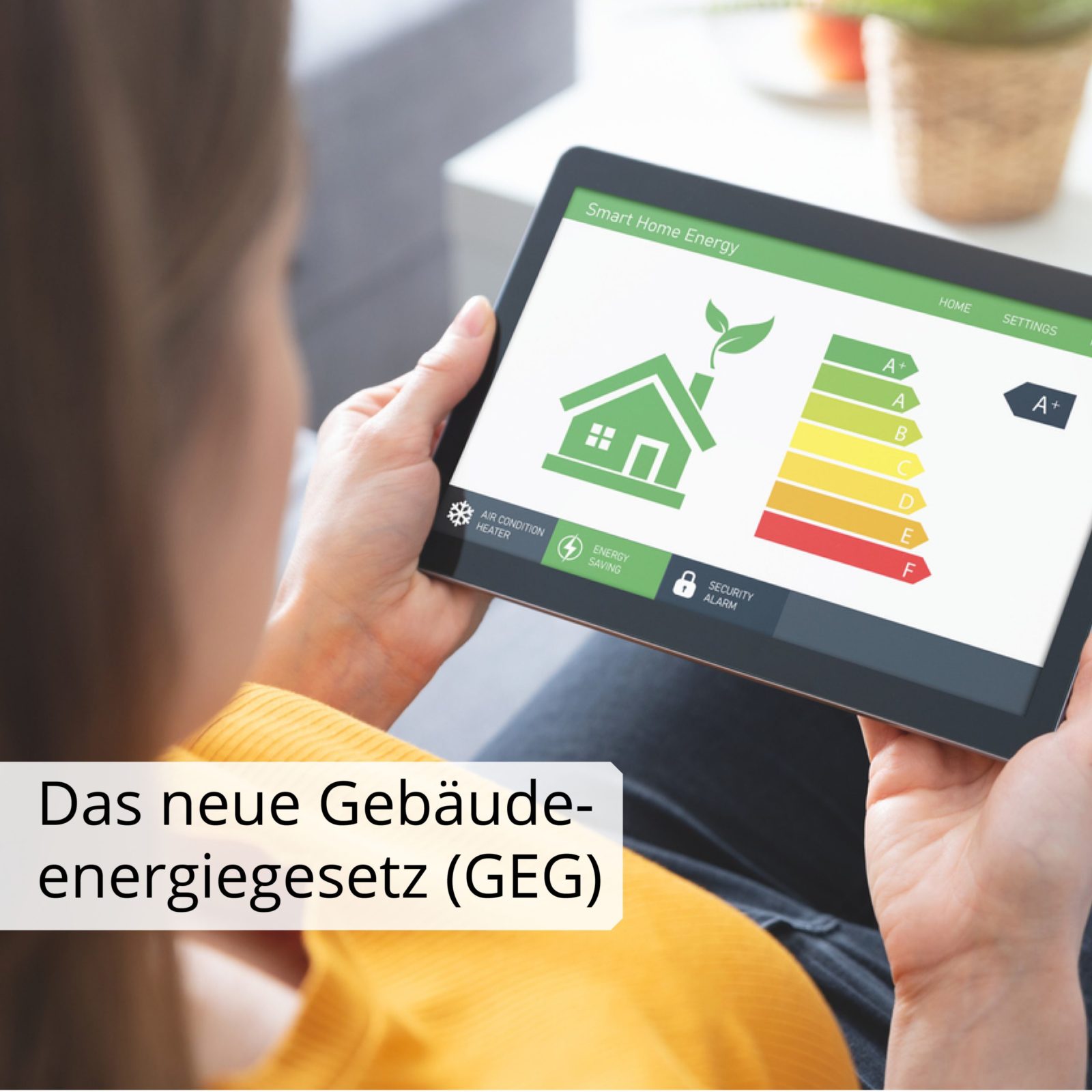The new Building Energy Act (GEG)
Since 1 November, the new Building Energy Act (GEG) has come into force and replaces the previous Energy Conservation Act (EnEG), the previous Energy Conservation Ordinance (EnEV) and the previous Renewable Energies Heat Act (EEWärmeG).
The GEG combines the above-mentioned laws and, like them, contains requirements for the energy quality of buildings, the creation and use of energy performance certificates and the use of renewable energies in buildings. The current energy requirements for new buildings and renovations will not be tightened.
The GEG implements the coalition agreement, the resolutions of the 2018 Housing Summit and the measures adopted in the cornerstones for the 2030 Climate Protection Programme with regard to energy saving legislation for buildings.
The following is a summary of the main innovations:
- The introduction of an equivalent procedure for demonstrating compliance with energy requirements in the construction of residential buildings.
- Creditability of electricity from renewable energies in future also through the use of electricity from renewable energies generated close to buildings
- The primary energy factors to be used in the calculation of the permissible annual primary energy demand are now directly regulated in the GEG
- Introduction of the innovation clause: Instead of the annual primary energy requirement, greenhouse gas emissions can be limited if certain energy requirements are met
- Updates regarding conventional system technology (e.g. retrofitting obligations for boilers that may no longer be operated if installed before 1991 or after 30 years, ban on oil heating systems after 2026)
- Updating of the requirements for the energy certificate (e.g. mandatory on-site inspections or informative images, mandatory information on greenhouse gas emissions, extension of the authorisation to issue energy certificates, i.e. no differentiation between residential and non-residential buildings, mandatory energy advice from an energy consultant when purchasing a property).
You can find the full article of the BMI here:
#mullandpartner #engineeringforabettertomorrow #whatwedo #news #energyefficiency
Our business areas
Environmental and geotechnical engineering
Construction and project management
Renewable energies
Real estate development
Infrastructure
Water management
Our companies
M&P Engineering Company
M&P Engineering Company Munich
T&P Beratende Ingenieure
P&P Real Estate Consulting
P&B Real Estate Management
P&M Project Management
M&P Umwelttechnik
Please contact us
Follow us on

